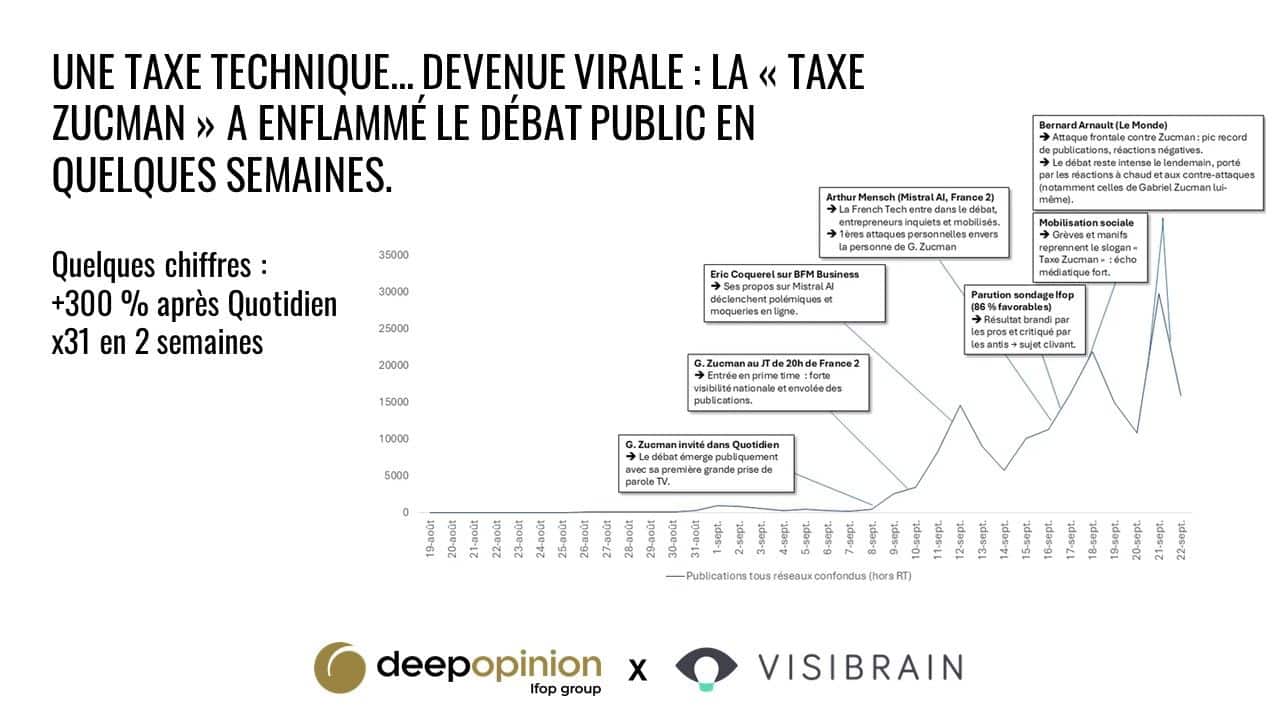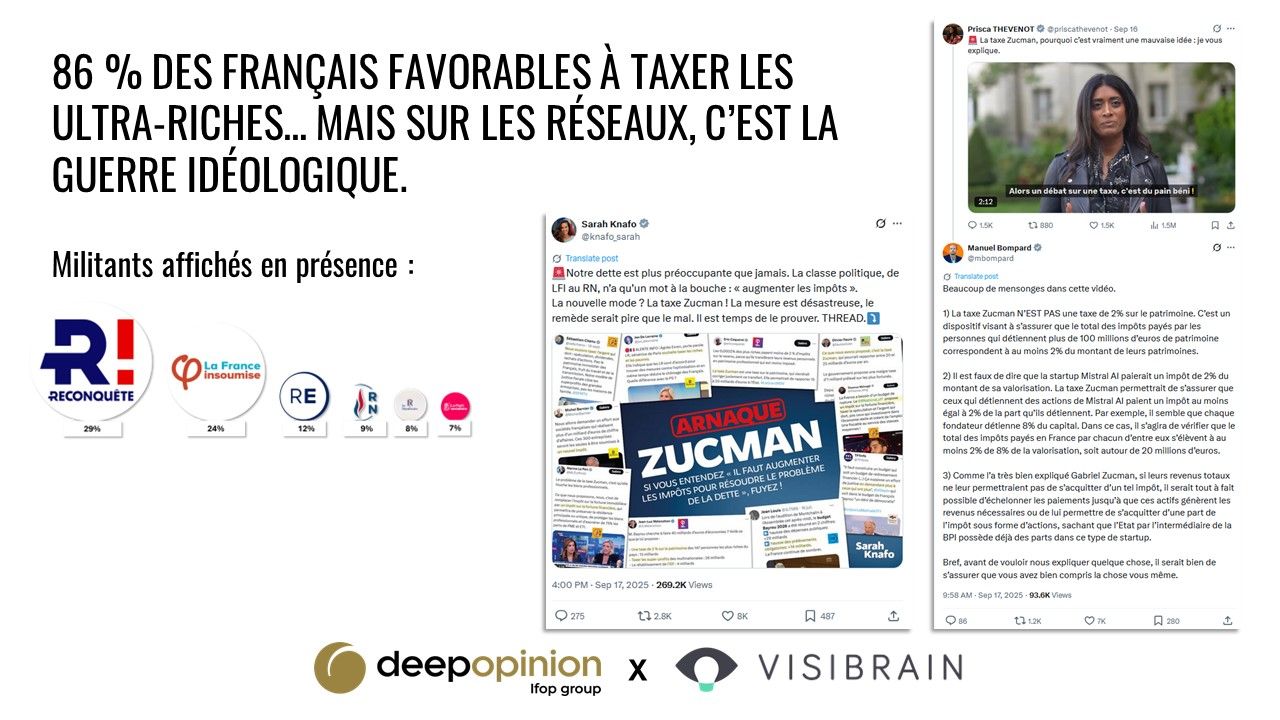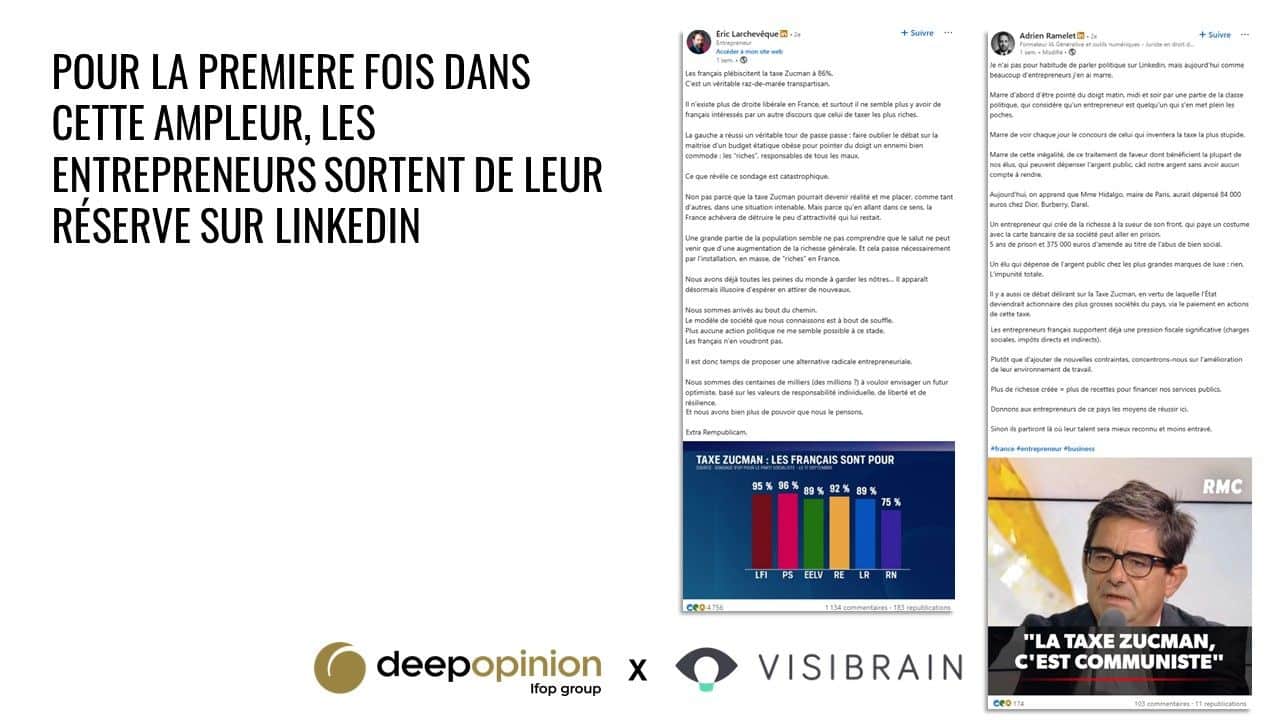Last January, ecologist MP Eva Sas tabled a bill inspired by the work of economist Gabriel Zucman: to introduce a minimum tax of 2% on assets in excess of €100 million, i.e. around 1,800 tax households in France. At first glance, a technical subject reserved for political circles. However, in just a few weeks, the Zucman tax has become one of the most viral debates of the autumn.
Its emergence is by no means insignificant. It is part of an economic climate marked by mounting public debt and persistent political instability. Far from remaining confined to the National Assembly, the proposal made its way into the media, then onto social networks, where it took on an unprecedented dimension.
To analyze this sequence, Deep Opinion’s teams used data from Visibrain France to decipher its driving forces.
Between August and September, the debate surrounding the Zucman tax generated almost 486,000 publications from 86,000 Internet users. The media sequence, marked by Gabriel Zucman’s interventions and the reactions of political and economic players, triggered exceptional visibility.
In the space of a few weeks, a tax proposal emerged from the institutional framework to become a real social issue, supported by :
- Powerful media coverage (TV programs, newscasts, press)

- Ideological polarization online, particularly on X

- Unusual mobilization of entrepreneurs on LinkedIn

- Personal attacks and, at the margins, disinformation

This case study illustrates how opinion is shaped today: at the crossroads of traditional media, social networks and the figures who embody debate.
Read the full article here


